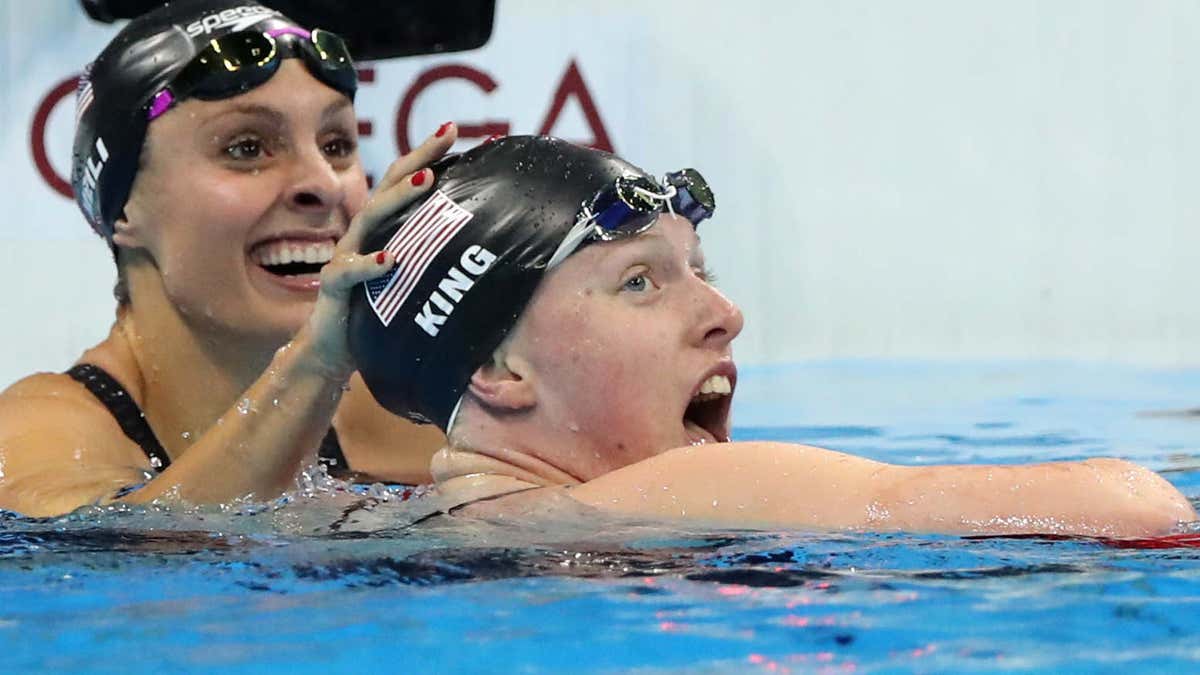
Team USA swimmer Lilly King has been outspoken about doping at the Olympics.
Despite the fact that I was very critical of the Olympic Games and voiced my skepticism about the potential shortcomings that could have overshadowed the ceremonies, I found myself very inspired by the display of athletic greatness demonstrated by all participating Olympians. Over the past week and a half I have been enamored with the athletes and their sense of purpose, their drive and their dedication to their sport.
It gives me such pleasure to watch these young men and women demonstrate great maturity, ethics and commitment while proving what the human body can accomplish if it’s treated with the upmost respect. That being said, I was also very moved by the comments made by Team USA swimmer Lilly King, a 19-year-old who won gold in the women’s 100-meter breaststroke while decrying drug cheats in her sport, specifically Russian rival Yulia Efimova who served a 16-month ban for doping.
“You wave your finger No. 1 and you’ve been caught drug cheating?” King declared on NBC after a semifinal race. “I’m not a fan.”
After her gold medal win over Efimova she declared:
“It just proves that you can compete clean and still come out on top with all the work you put in.”
And then there was Michael Phelps, who called the cheating among athletes “sad.”
“We’ve had this problem for how many Olympics now? It seems every time it’s something that comes up,” Phelps said. “It’s sad. That’s really what it is. It’s really sad that we can’t control it, that somebody who is in charge cannot control this.”
I hope that their words are not lost on this country as millions of athletes get ready to return to school in the coming weeks. While every school administrator, parent, teacher and coach will encourage their athletes to give it their all, it’ll be up to those same adults and role models to keep a watchful eye on these teenagers as they face the pressure of the fame in their communities.
We continue to battle an epidemic of performance-enhancing drugs among our high school and young athletes. While some drugs are more obviously dangerous than others, all illegal substance use must be taken very seriously. For example, we know that steroids can cause both temporary and permanent damage to anyone using them, but in teens whose bodies are still developing, there is a heightened risk. They could cause fertility problems, impotence, high blood pressure and cholesterol, heart and liver abnormalities, shrinkage of breast tissue, mood swings, menstrual irregularities and much more.
But there also is a growing issue of supplement use among our youth. These over-the-counter concoctions are being touted as natural tools to enhance athletic performance— often without any regulation. Let me tell you something, nothing about these supplements is natural. A balanced diet, physical exercise, mental determination and adequate sleep will get you further in this life than any manufactured promise will.
Taking more than the recommended dose of a supplement can also lead to long-term issues for teens. Those high in protein content may create an undue burden on their kidney function, which could have serious health ramifications that will persist for the rest of their lives.
So while school and sports fulfill many needs for teens, like helping to encourage socialization, building self-esteem, encouraging team building and creating a support network, it could also present an opportunity for some to be led astray. Athletics can offer a world of opportunity to many teens, whether it be scholarship opportunities or even a shot at the pros, but you don’t get there by taking shortcuts.
For the teachers and coaches getting ready to welcome students back into their classrooms and locker rooms, I encourage them to post a few of King’s quotes on the walls, or a picture of and Simone Biles, just to remind our youth of what is possible by staying the course.
